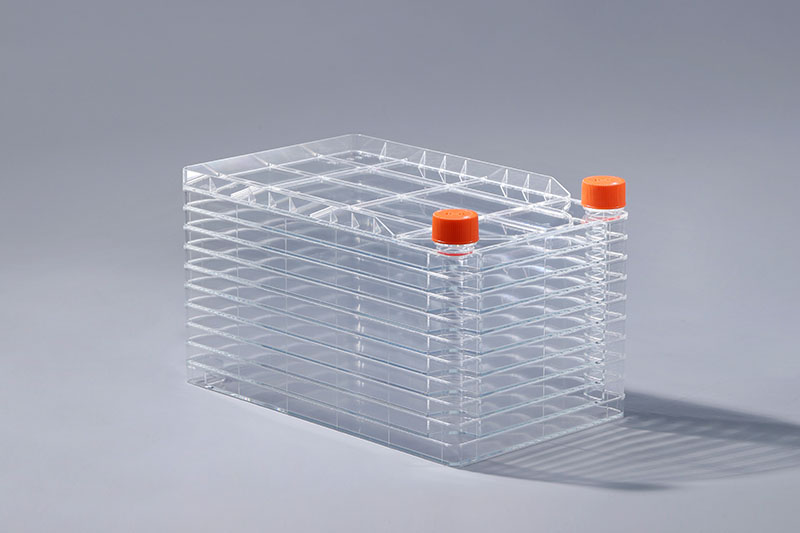The growth of cells not only depends on abundant nutrients, but also needs to be within a suitable pH value range for normal growth and reproduction. Therefore, before using the cell factory for large-scale cell culture, the pH value of the medium must be measured and adjusted first.
The pH value refers to the ratio of the total number of hydrogen ions in the solution to the total amount of substances. Generally, the pH value of the medium required for cell growth is 7.2-7.4. Too high or too low is not conducive to cell growth. The cell factory uses a liquid medium for culturing cells, which can be measured with a pH meter. The pH meter is a special instrument for measuring the pH value of a solution. It measures the pH of the solution through a pH selection electrode (such as a glass electrode), and the measurement result can be accurate to two decimal places.
It must be calibrated with a standard buffer solution of known pH (usually pH 4~7) before use. The electrode of the pH meter is rinsed with distilled water and then immersed in the medium of the beaker, and the pH of the medium can be read from the scale of the pH meter. Each manufacturer provides detailed operating instructions for each different pH meter.
After the measurement, if the pH value of the medium used by the cell factory is deviated, it needs to be adjusted accordingly. The pH meter can be calibrated with a standard buffer solution of known pH, then the composite electrode and resistance thermometer are placed in the culture medium, and an appropriate amount of hydrochloric acid and sodium hydroxide are slowly added from the end of the beaker away from the electrode to make the culture medium. Reach and maintain the desired pH.
The FAI climbed 5.9 percent year-on-year in the first 11 months of 2018, quickening from the 5.7-percent growth in Jan-Oct, the National Bureau of Statistics (NBS) said Friday in an online statement.
The key indicator of investment, dubbed a major growth driver, hit the bottom in August and has since started to rebound steadily.
In the face of emerging economic challenges home and abroad, China has stepped up efforts to stabilize investment, in particular rolling out measures to motivate private investors and channel funds into infrastructure.
Friday's data showed private investment, accounting for more than 60 percent of the total FAI, expanded by a brisk 8.7 percent.
NBS spokesperson Mao Shengyong said funds into weak economic links registered rapid increases as investment in environmental protection and agriculture jumped 42 percent and 12.5 percent respectively, much faster than the average.
In breakdown, investment in high-tech and equipment manufacturing remained vigorous with 16.1-percent and 11.6-percent increases respectively in the first 11 months. Infrastructure investment gained 3.7 percent, staying flat. Investment in property development rose 9.7 percent, also unchanged.
 English
English



















































